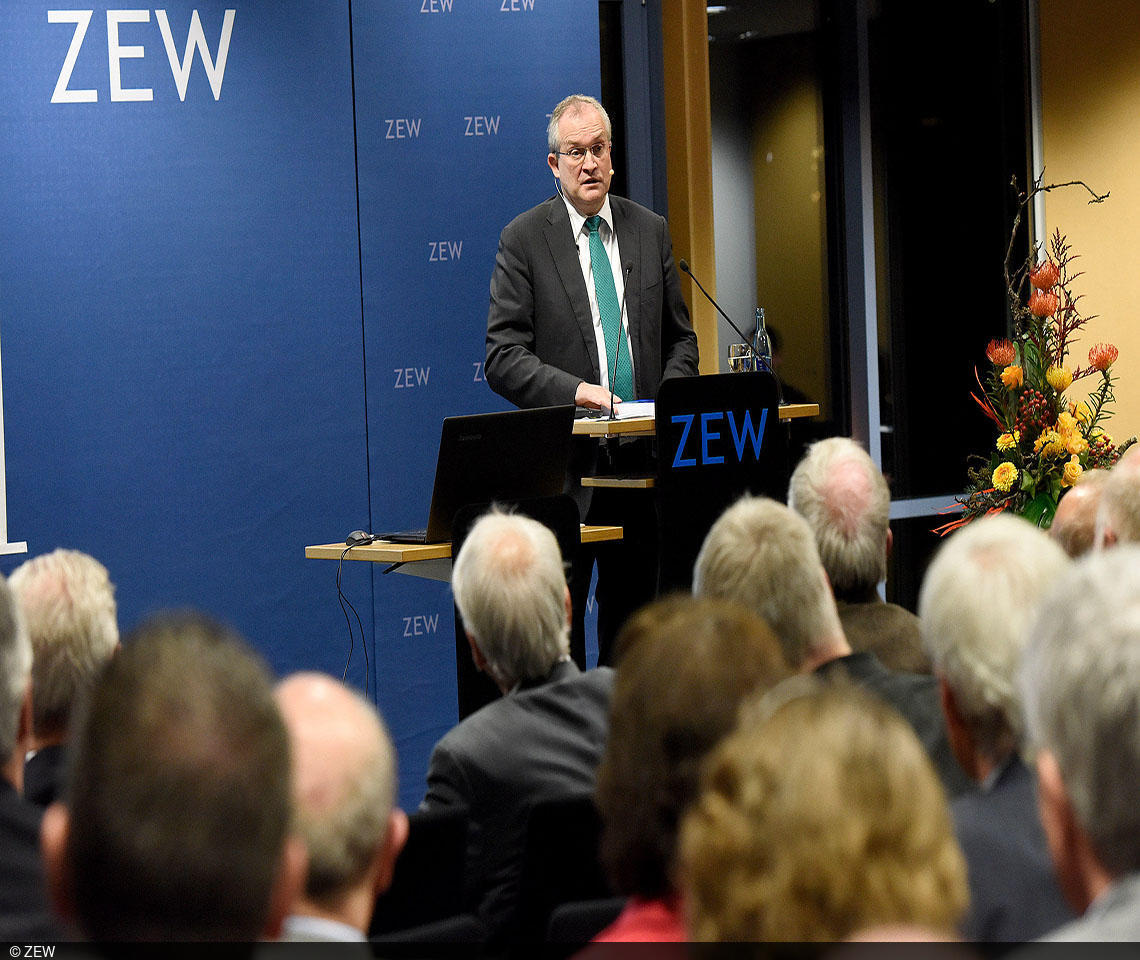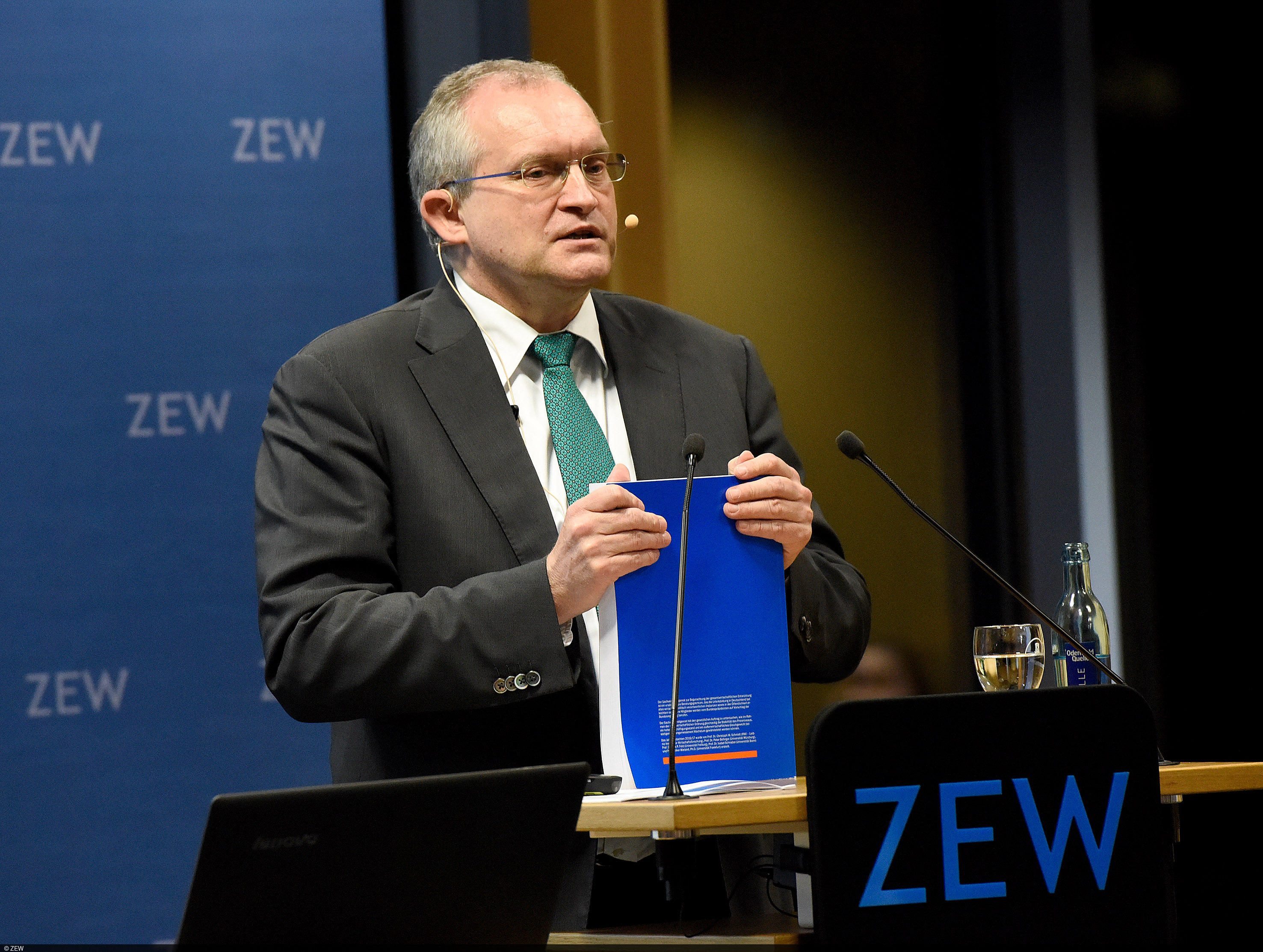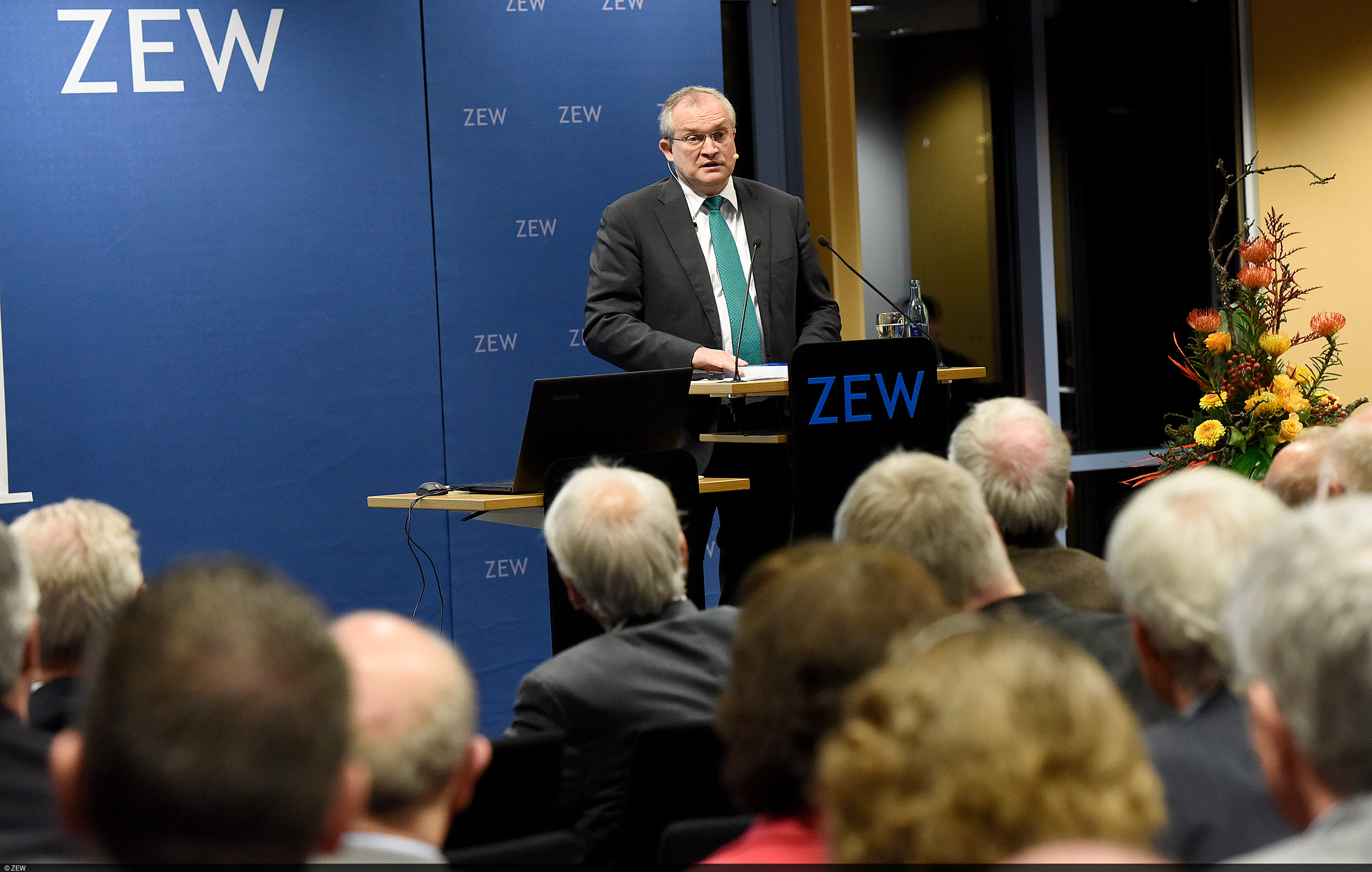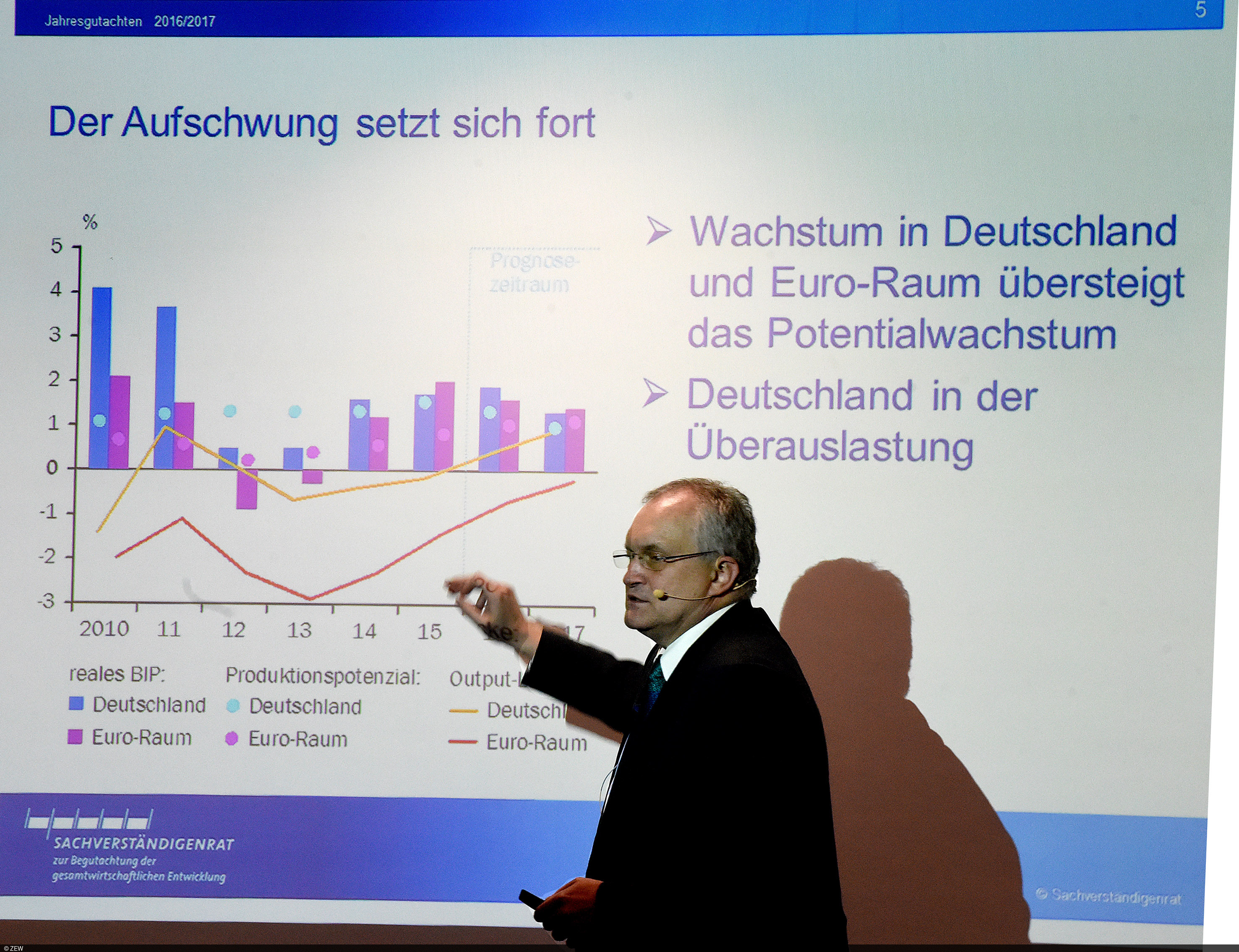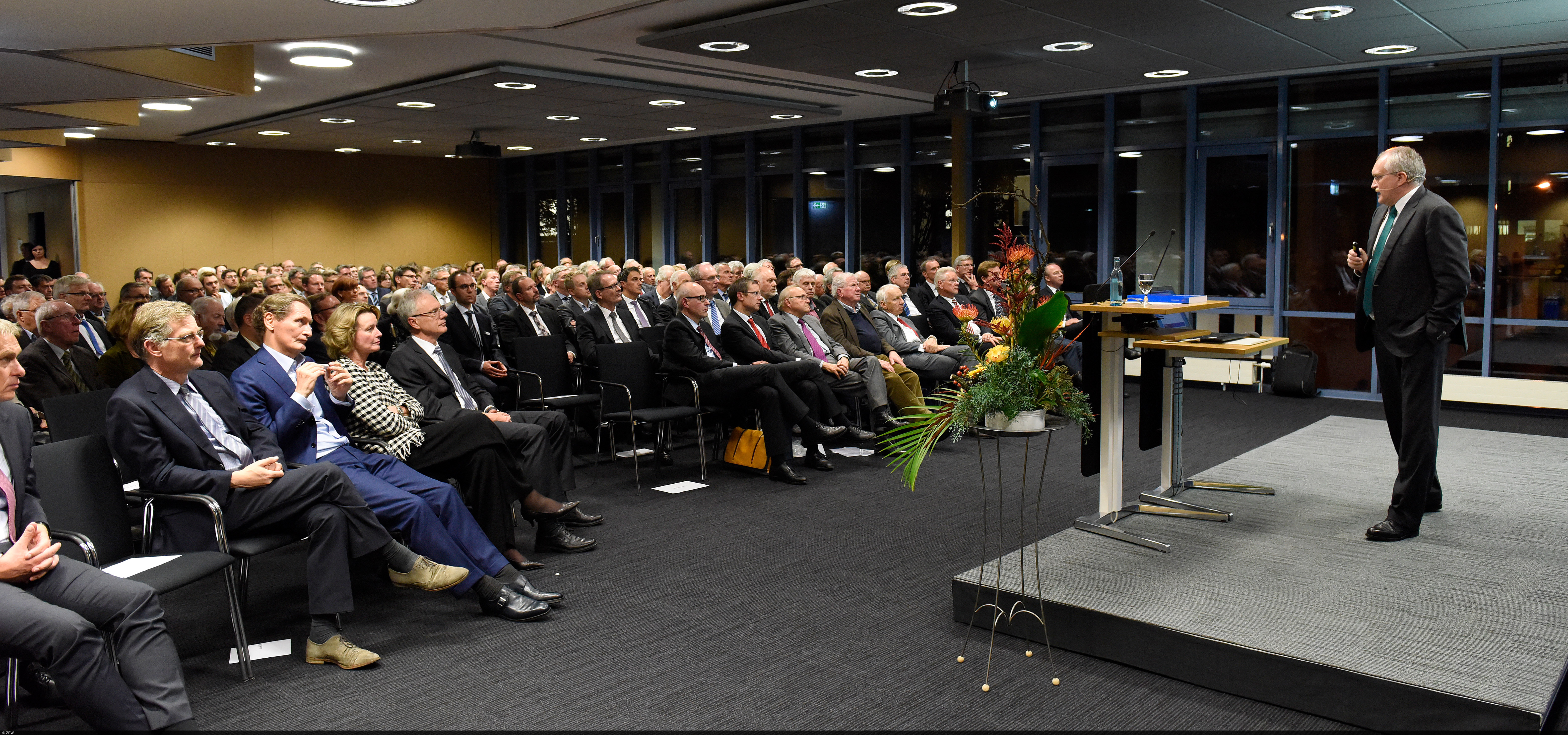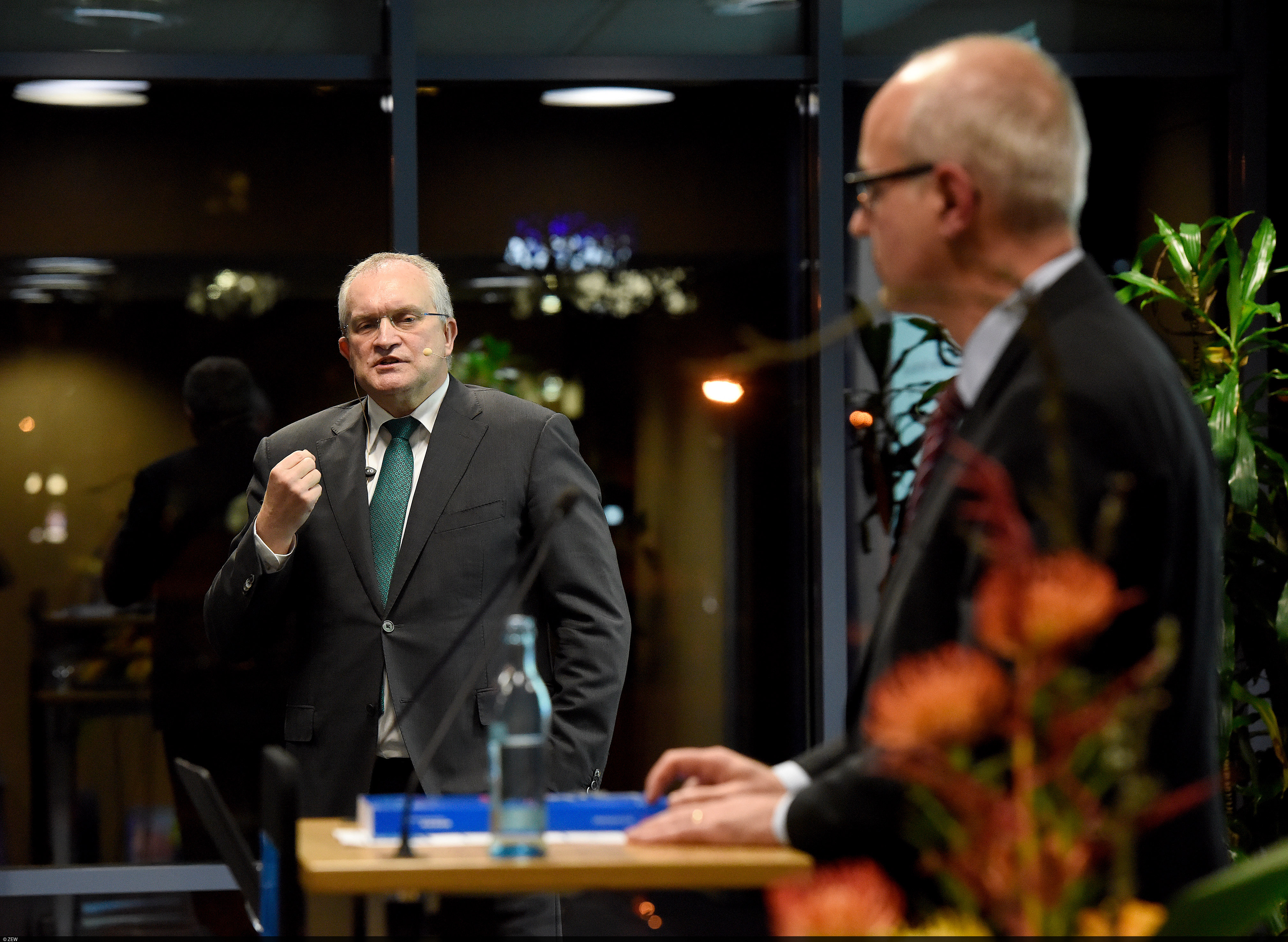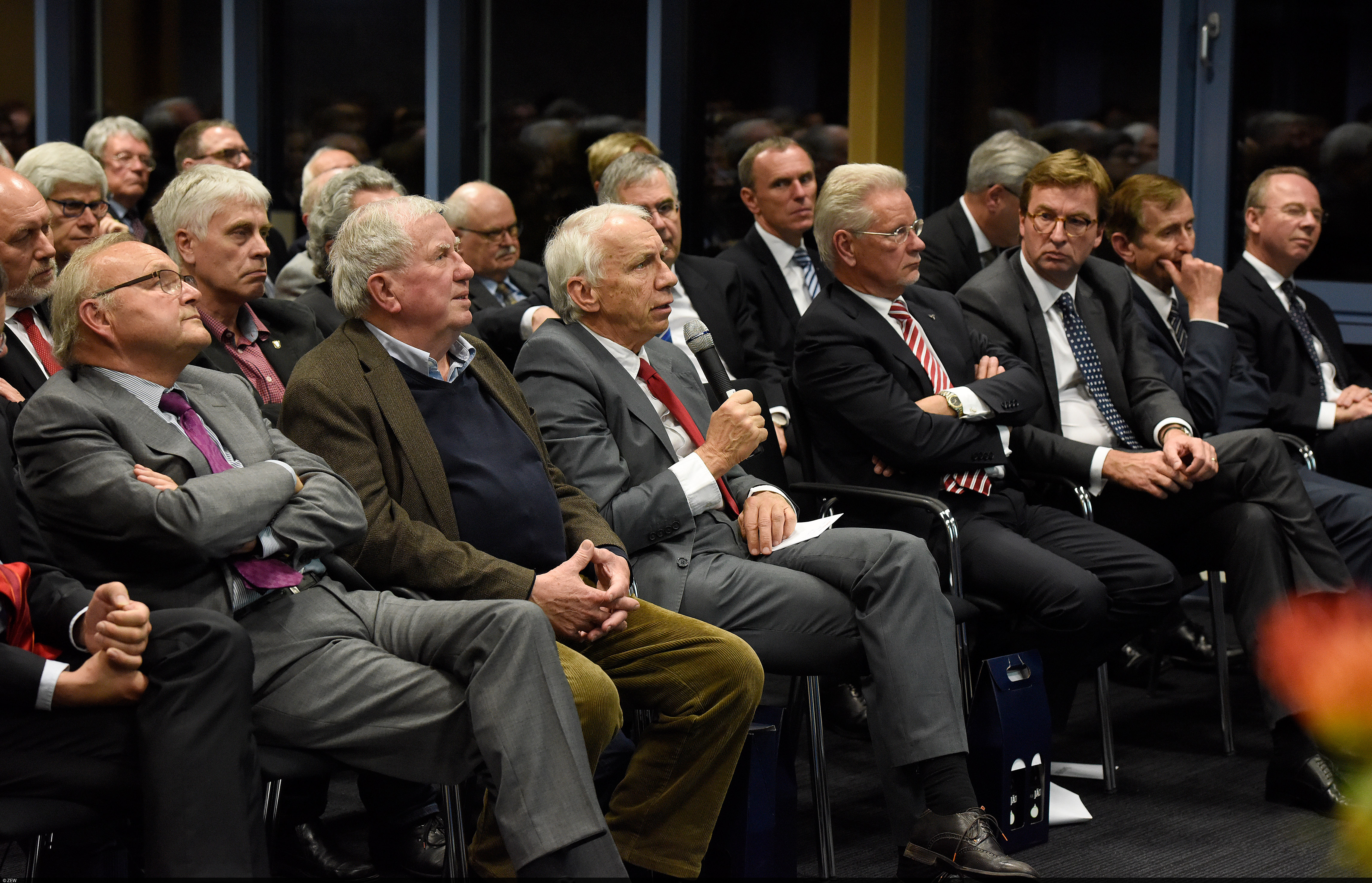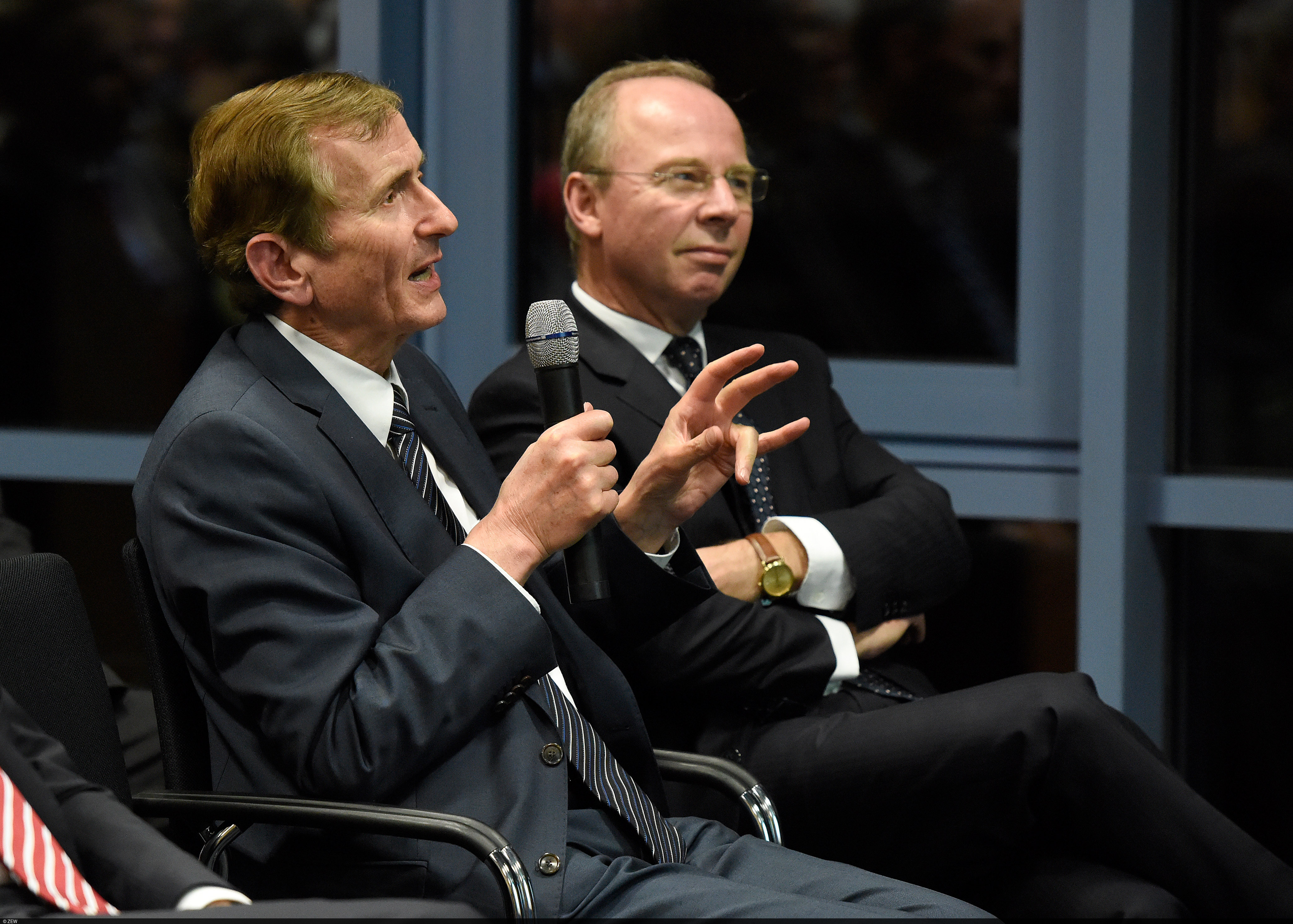Time for Reforms in Europe and Germany
Public EventsProfessor Christoph M. Schmidt, chairman of the German Council of Economic Experts and president of the RWI – Leibniz-Institute for Economic Research presented the Council's 2016/17 Annual Economic Report at the Centre for European Economic Research (ZEW) in Mannheim on 16 October 2016. In his speech, he shed light on the reforms which the Council considers necessary to be implemented in Germany and Europe. Around 240 guests and high-ranking actors from the realms of politics, science, economics and society attended the Council member's speech, which formed part of the lecture series Mannheim Economic and Monetary Talks.
"The time is always right for reforms; however, now is precisely the time for reforms against a backward-looking economic policy," said Schmidt at the beginning of his speech. For this very reason the Council of Economic Experts published this year's report under the title "Time for Reforms" – a call that, according to the Council, needs to be heeded by both Germany and Europe.
At the beginning of his presentation, Schmidt outlined the continuing economic upturn. "In both Germany and Europe, actual growth exceeds potential growth. Currently, Germany is moving further into overutilisation," explained Schmidt. "On a global scale, we are on a path towards moderate growth, which is, however, subject to a number of risks." These risks include the political uncertainty in Europe and the United States, geopolitical issues as well as the transformation process in China from an emerging market to one of the leading economies in the world.
"The economic upturn is not self-supporting"
With regard to economic growth, the European Central Bank's (ECB) monetary policy has played a significant role, which should not be underestimated. "The economic growth in the eurozone is mainly attributable to the ECB's expansionary monetary policy," explained Schmidt. The quantitative easing measure adopted by the ECB has only concealed the fact that many Member States are currently making no considerable effort to implement reforms. This is increasingly becoming a threat to financial market stability. "Given the persisting structural problems in Europe, the economic upturn is not self-supporting," said Schmidt.
With regard to the ECB's loose monetary policy, Schmidt also criticised that the low interest rates resulting from such policies are neither appropriate for the euro area nor for Germany. "In their monetary decisions, the ECB should not only focus on a harmonised index of consumer prices, but also take greater account of less volatile price indices, such as the BIP deflater or core inflation." There is urgent need of restructuring the unstable banking system in Europe, since many large banks in the euro area are still not adequately capitalised, and the credibility of the bank resolution regime needs yet to be restored.
Separating national and international responsibilities
"There are certain matters that should be organised on an international level due to external effects." For that matter, Schmidt proposed to reinvigorate the principle of subsidiarity. This particularly holds for migration, climate and public security policies. Climate policies, for example, should be tackled jointly at a global level, given the worldwide impact of greenhouse gas emissions. Matters concerning fiscal, labour market and social policy, however, should instead be addressed by national authorities. In a European context, Germany should make use of the persisting fiscal leeway.
Schmidt also briefly addressed the implications of the Brexit vote for Europe. He emphasised, however, that the referendum, much like Donald Trump's election as the new US President, is only being briefly touched on in the Annual Report. In the medium term, the Brexit vote is likely to have moderate economic and political implications. With regard to the upcoming negotiations, Schmidt argued that the four fundamental freedoms in the European Single Market should be borne in mind as a core element of the EU. Furthermore, the Brexit vote may lead to a shift of power in Europe. "The balance of power is likely to shift towards Member States like Germany, the Netherlands and Ireland."
Reforms are long overdue in Germany
"Timing is crucial," said Schmidt, emphasising the need to implement the Council's reform proposals for Germany. During his speech, he argued that, "The right time for reforms does not necessarily have to be in times of need," criticising the low reform activity of the Federal government in office.
One of the central aspects that could contribute to change is the development of income and wealth inequality. In particular, wealth inequality in Germany has been increasing significantly in the past years. According to Schmidt, this is evidenced by the fact that, between 2010 and 2014, real growth in wealth has only occurred among medium-sized assets. One solution would be to promote equal opportunities by investing in early childhood education. Another much needed reform would be to revise the pension scheme with the aim of creating a more sustainable retirement plan. In order to withstand demographic change, the statutory retirement age should be linked to longer life expectancy in the statutory pension insurance system. "The pension level is not an actual level, but a relative measure. We cannot live at the cost of future generations. Instead, we have to promote intergenerational justice," concluded Schmidt.
The Mannheim Economic and Monetary Talks take place on a regular basis with the support of the Bankenvereinigung (Bank Association) Rhein-Neckar-Mannheim.
